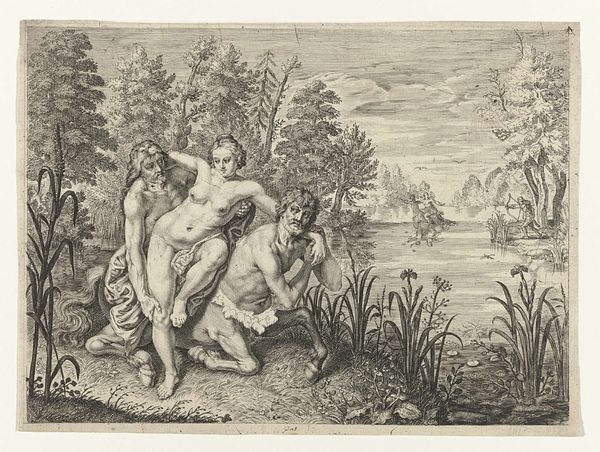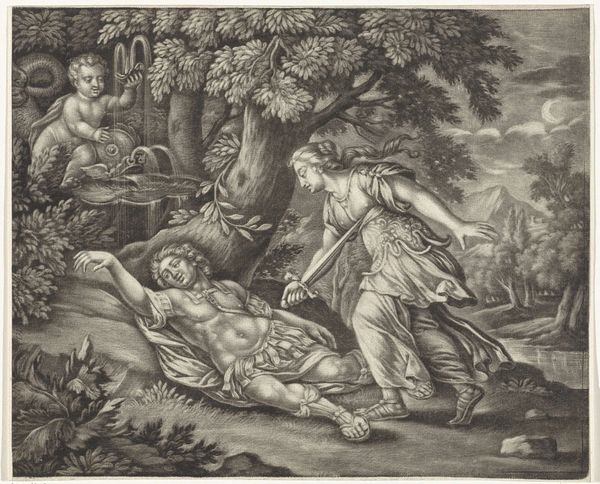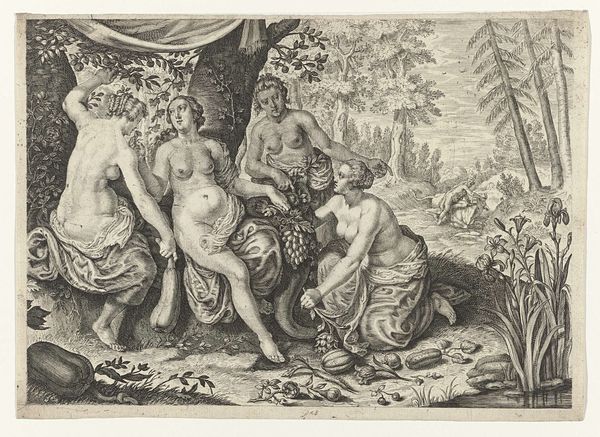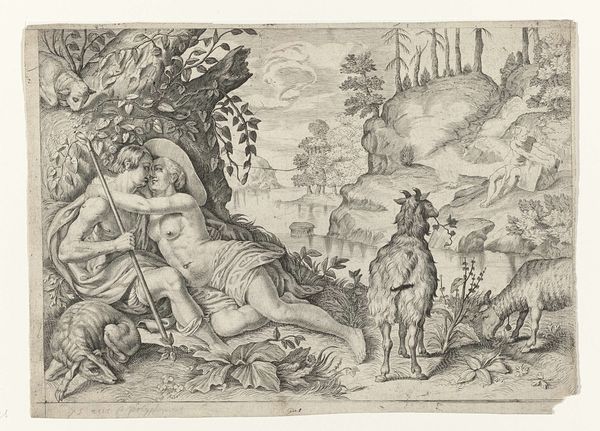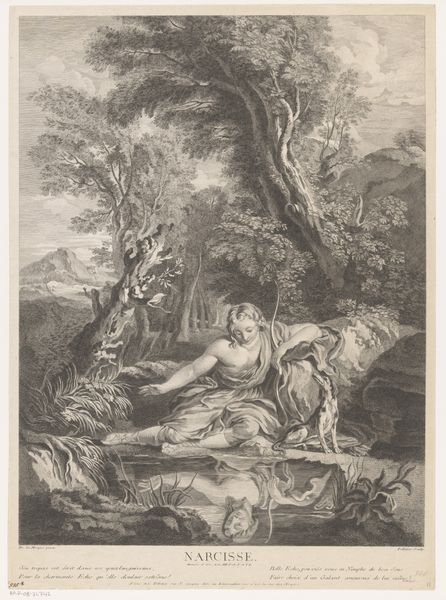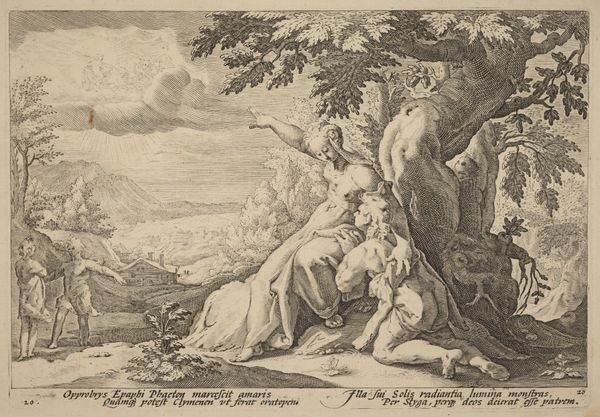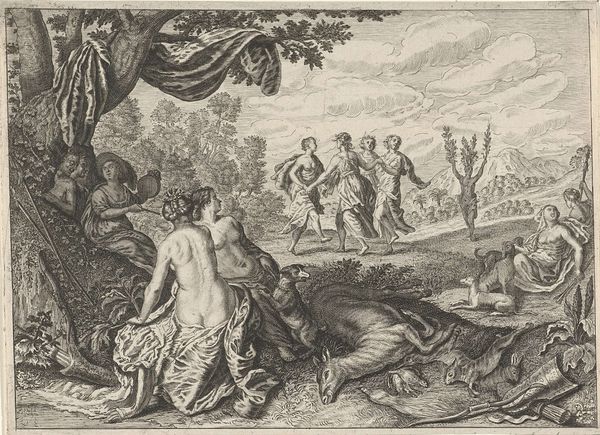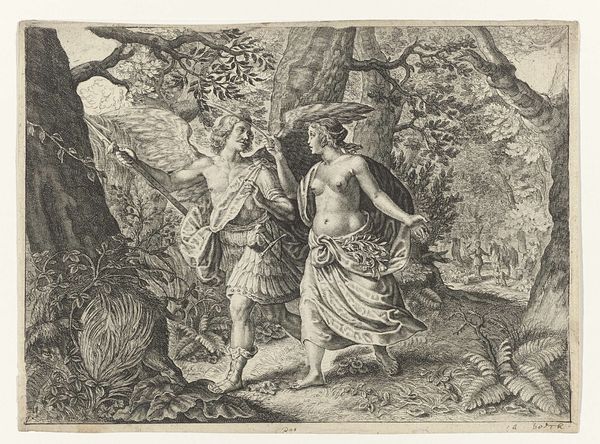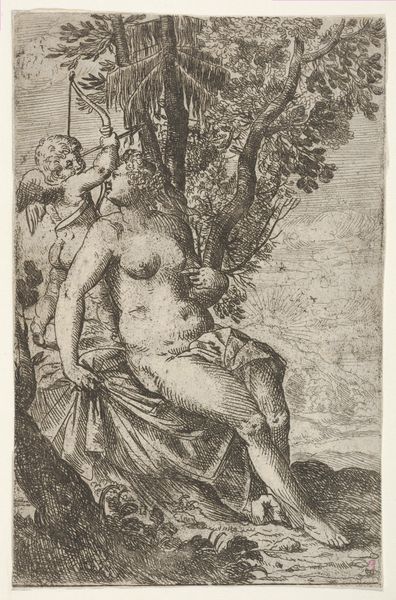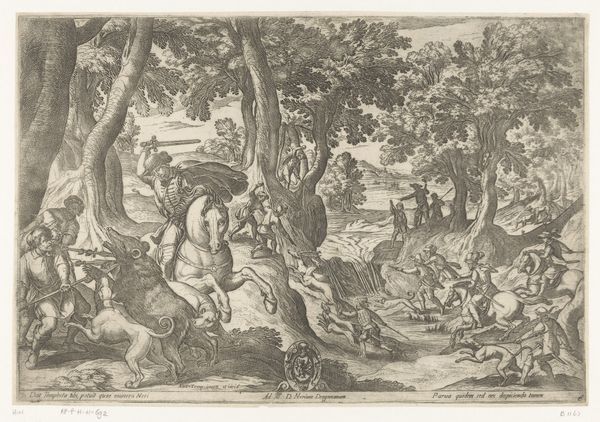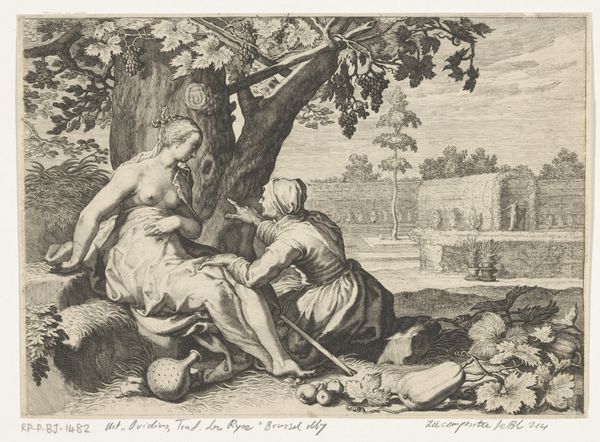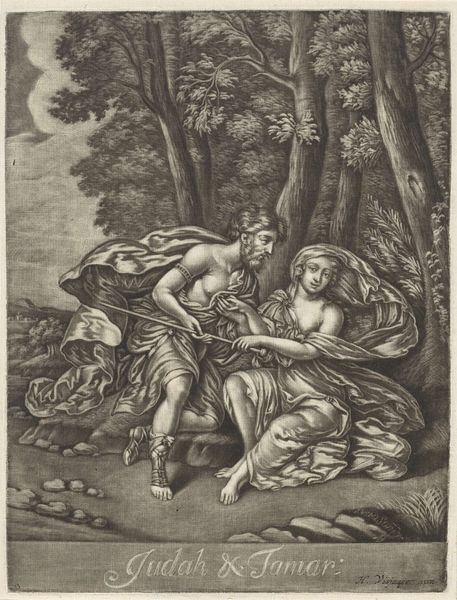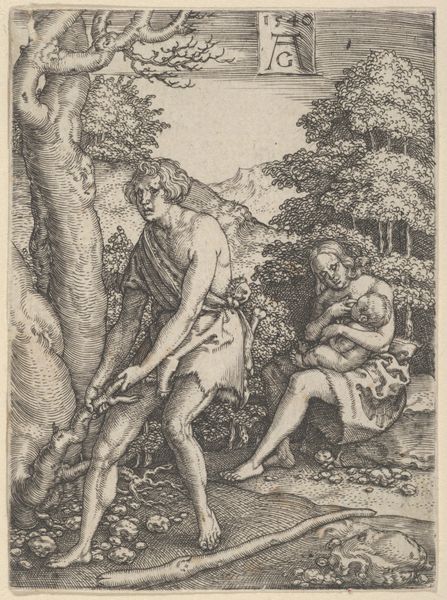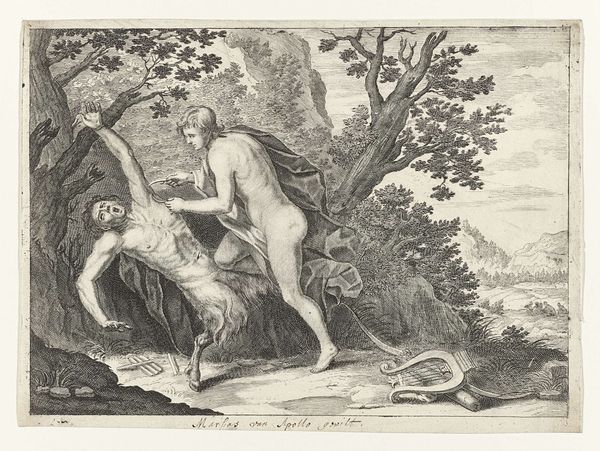
print, engraving
#
narrative-art
#
baroque
#
pen drawing
# print
#
landscape
#
figuration
#
engraving
Dimensions: height 170 mm, width 230 mm
Copyright: Rijks Museum: Open Domain
Editor: Here we have Crispijn van de Passe's "Harmonia en Cadmus," dating roughly from 1636 to 1670. It’s an engraving, creating such detailed lines... The entwined figures in the foreground, part human, part snake, create this feeling of being caught between two worlds. What historical narratives are at play here? Curator: Well, this image draws heavily on the classical myth of Harmonia and Cadmus, but it also resonates with broader concerns about power, transformation, and societal order prevalent in 17th-century Europe. Notice how the landscape isn’t just a backdrop, but a carefully constructed setting that reflects ideas about idealized nature. What kind of public role did prints such as this have at that time? Editor: Perhaps prints were a more affordable way for these mythological narratives to spread to a larger audience. So the choices made by van de Passe become even more significant. How does the setting then reinforce the narrative's socio-political undertones? Curator: Consider the city in the background. It represents civilization, the organized world that Cadmus, as founder of Thebes, helped to establish. The couple’s transformation into serpents might be read as a commentary on the potential dangers of power. And in choosing this dramatic moment, the artist prompts reflection on moral authority. Do you see how the museum acquires particular responsibilities when it displays such artwork? Editor: Definitely. The museum's role extends beyond mere presentation, it curates the discussion around the artwork, highlighting elements such as colonialism in art, ensuring the complete history is understood. I'm leaving here with a heightened understanding of the artwork's socio-political implications. Curator: Precisely, and how vital that broader understanding is for us today! It's been a great conversation; seeing the familiar from a fresh angle helps us better appreciate the piece.
Comments
No comments
Be the first to comment and join the conversation on the ultimate creative platform.
